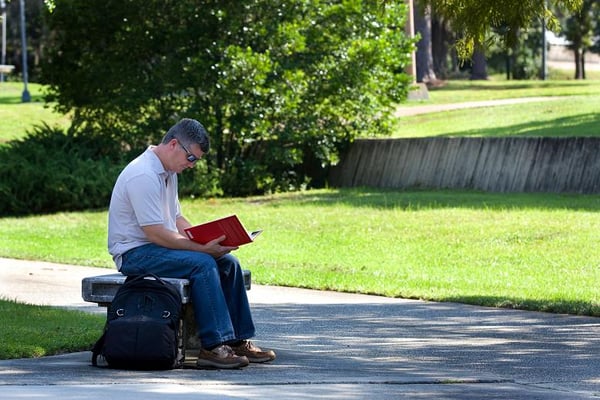Published on
Top Four Challenges Faced By Non-Traditional Students at Community Colleges

I have learned through trials and tribulations with higher learning that it does not matter how much a person knows until you first believe how much they care. More than anything, non-traditional students need a consistent reminder that “we care.”
This can be achieved through daily exhibits of compassion to students who are arriving with a diverse set of challenges and the understanding that a “cookie-cutter” method of resolution will not apply. This can be achieved if each staff member at any higher learning institution, regardless of job position, embraces those small moments when encountering any student to exhibit the smallest act of kindness, whether through a word of encouragement or a smile, or simply sharing how excited you are about their educational pursuit.
Below is a list of the four greatest challenges I have seen non-traditional students overcome at community colleges.
1. Balancing Financial Commitments
Finances are one of the greatest challenges non-traditional students face when they decide to attend a community college or university. The financial challenge is not only associated with having sufficient funds to pay for the cost of tuition and books, but often extends to a simple question of, “How will I have money to get back and forth to school or to eat lunch?” These financial challenges are further exasperated due to the economic instability in the personal lives of many students, who are living in situations less than conducive for achieving academic success due to no, or minimal, income and/or financial support from parents and family. Some students reside in neighborhoods with high crime rates, which lack the required structure to facilitate academic success. This fosters a strong desire in students to forge ahead but the student is still left with the question of, “How?”
2. Being the First to Enroll
Many non-traditional students are the first generation in their families to have the opportunity to attend college. As a result, these students are unfamiliar with the internal processes and often confronted with the initial challenge of simply understanding the process for registration, financial aid and how to effectively select courses for a specified degree or certificate program. The community college has staff to advise and assist students with the transition into higher learning, but many students are still challenged and can easily become de-motivated before entering the classroom on the first day of class.
3. Difficulty with Technology
Students are further challenged because many arrive to college without computer equipment and, at times, without having the ability to access the Internet from their homes. This presents learning challenges when all communication is done through the student email system. Technology has become a central component to the effective functioning and continued growth in all of our lives. Thus, it can be a challenge for students arriving at college for the first time.
4. Having the Confidence to Succeed
I believe one of the greatest challenges non-traditional students face is arriving to community college with low self-esteem and/or an inadequate faith in their ability to succeed. As an inspirational speaker and life coach, I understand that regardless of the academic tools and support provided to students to achieve success, without a strong belief in one’s ability to grow and learn, it becomes an arduous task. This is evidenced when some students are easily deterred from continuing on in their education when faced with financial challenges or what may be deemed as “regimented” internal processes. Students are sometimes left feeling as though they must “figure things out” on their own as they are being prepared for the working world.
Author Perspective: Administrator
Author Perspective: Community College



